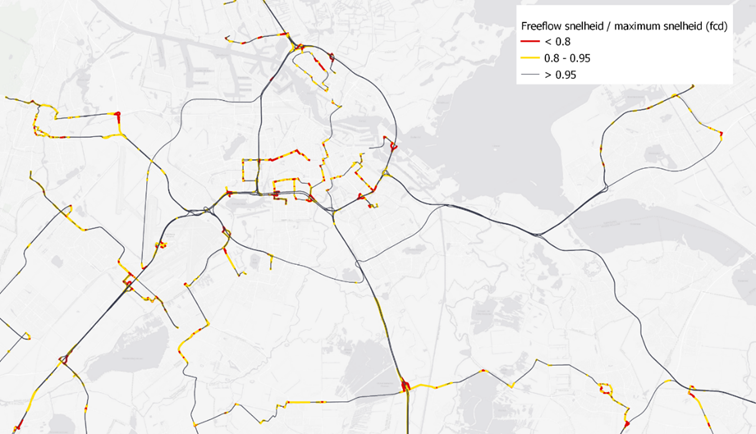Data obtained from in-car navigation software, traffic apps and fleet management software is a valuable new asset to describe mobility. Such floating car data holds great promise for a more detailed description of mobility patterns and a deeper understanding of travel behaviour. The Dutch national data portal for road traffic hosts an extensive database that contains average speeds at all segments of the Dutch road networks for individual minutes and days since 2019. This data allows reconstructing travel times on any route and for any day and time. VU set up an analysis environment that makes use of this huge data repository to analyse variation in travel times. Commissioned by the Ministry of Infrastructure and Water Management, they constructed the travel times for 120 routes using floating car data capturing a pre-COVID period of 15 weeks in 2019 between the summer and Christmas holidays. Their analysis focussed on travel time unreliability and supported the further development of the decision support tool (LMS-BT) the ministry uses to evaluate the need for future investments in the highway system. The report describing data preparation and results was delivered to the Ministry June 2022 and can be found here.

